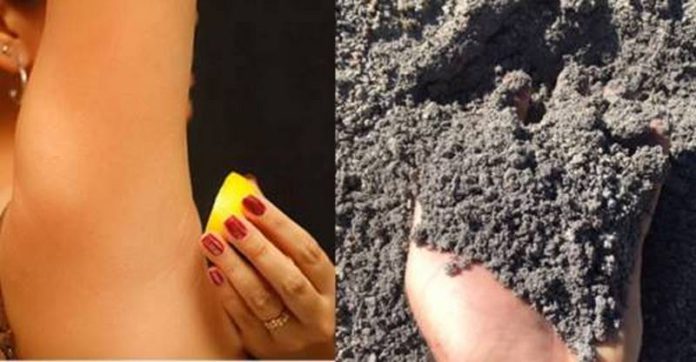A dermatologist, Abigail Appiah-Cofie, has cautioned against relying on home remedies like lime and ash for treating armpit odour.
According to her, these remedies are ineffective as long-term solutions and should not be considered replacements for antiperspirant deodorants and roll-ons.
Mrs Appiah-Cofie, who is the head doctor of Skinvil Dermatological Centre at Madina, Accra, shared her insights on the causes, symptoms and preventive measures for armpit odour in an interview with The Mirror last Tuesday.
She said that “the odour occurs when sweat combines with bacteria on the skin’s surface, leading to the production of foul-smelling compounds. The apocrine glands, found in the armpits and genital areas, are primarily responsible for this type of sweating.”
Regarding the use of remedies such as lime juice, ash, baking soda or apple cider vinegar, Mrs Appiah-Cofie stressed that they do not effectively penetrate the skin to stop sweat production.
She stated that at best, these options could temporarily neutralise the odour. However, she warned that without proper personal hygiene, relying solely on such treatments could lead to the accumulation of unpleasant odours.
The dermatologist also pointed out the lack of scientific research supporting the effectiveness of these homemade remedies, highlighting the need for scientifically proven and standardised solutions when it comes to health.
She warned that these remedies may cause skin irritation and allergic reactions in some individuals, as they do not come with usage guidelines, and ingredients like vinegar can cause burns or rashes in sensitive areas.
Mrs Appiah-Cofie noted that certain medical conditions, such as hyperhidrosis (excessive sweating) and apocrine bromhidrosis (a disorder of the apocrine glands), could contribute to persistent and intense armpit odour.
In such cases, she recommended consulting a dermatologist who may prescribe antibiotics or high-strength antiperspirants containing aluminium chloride.
These treatments are typically applied to dry skin before bedtime and washed off in the morning.
“In addition to medicinal treatments, regularly washing the armpits with antibacterial soap and warm water can help eliminate odour-causing bacteria. Shaving regularly can also reduce the surface area where bacteria thrive, and wearing loose-fitting clothing made of cotton allows air circulation, aiding moisture absorption,” she added.
When asked about people’s preference for home remedies, Mrs Appiah-Cofie attributed it to the desire for cost-effective solutions. However, she emphasised that personal hygiene and body odour should not be compromised, given the availability of deodorants ranging from as low as GH¢10 to GH¢100.
She stated that affordable options were also available for every budget.
Mrs Appiah-Cofie urged individuals to adopt proper self-care routines and seek professional help when needed.
“By doing so, individuals can successfully overcome the challenges associated with armpit odour, regain confidence and enjoy odour-free days,” she added.

